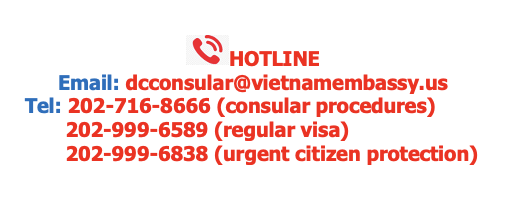Opinion of one American author on Vietnam Human Right Act
Ha Noi, Sept. 19 (VNA) Viet Nam News Agency would like to introduce an editorial on Vietnam Human Right Act
written for the Institute for Policy Studies' Foreign Policy in Focus and the Progressive Media Project by Dr. Andrew Wells-Dang.
The author opened his writing by applauding the U.S. House of Representatives for passing the Viet Nam-U.S. Bilateral Trade Agreement, which helps restore full normal relations with Viet Nam after decades of obstruction and delay.
The trade agreement, Dr. Dang noted, demonstrates the sustained improvements in Viet Nam's economy, society and foreign relations since the renovation process known as 'doi moi' began in 1986.
"Anyone who has travelled to Viet Nam, let alone lived and worked there as I have, recognises that the pace of change there is incredibly fast."
"Viet Nam is enjoying its first prolonged period of peace since the arrival of the 19th century French colonialists. From virtual starvation under a U.S.-led embargo, Viet Nam has become one of the world's leading rice and seafood exporters. In the process, poverty rates have been reduced by two-thirds," the author noted.
Dr. Dang pointed out that the United Nations Human Development Index classifies Viet Nam as a moderately-developed nation, far ahead of its rank in income terms. Viet Nam is one of the few countries to have adopted national policies on protecting women's rights and children's rights. Buddhist temples and both Catholic and Protestant churches are open and rapidly attracting new members.
Dr.Dang added that the local press prints a variety of opinion and Communist Party membership is no longer a prerequisite for advancement in society or membership in the National Assembly. In early June, the National Assembly undertook an unprecedented public questioning of government ministers and policies, broadcast live on national television.
"Unfortunately, none of this wider context emerges in the constrained Congressional debate around the Viet Nam Human Rights Act. Viet Nam's die-hard political opponents, including extreme segments of the Vietnamese-American community, continue to feed incomplete or erroneous information to members of Congress. Civil and political rights, particularly religious freedom, are their preferred targets," the author cited.
He quoted words by Lady Borton, an American writer with years of experience in Viet Nam, as saying that the bill's provisions use 'human rights' and 'democracy' to set ethnic group against ethnic group to reopen the exodus of 'refugees', and to dampen the opening process that many people have worked for years to build.
The author further noted that Viet Nam does have many problems but not necessarily the ones the Congress is focusing on. He recommended the United States to help Viet Nam solve problems such as corruption, economic disparity between urban and rural residents, trafficking, AIDS, and drug abuse through cooperative assistance in rural development, poverty alleviation, small business development, legal and human rights training. "These are exactly the forms of aid that the House seeks to restrict. The 'Human Rights Act' conditions most official assistance to Viet Nam on U.S.-set external guidelines that Viet Nam must meet. Meanwhile, funding is channelled to exile groups, some of them possibly involved in terrorist activities, who need meet no conditions at all."
The author concluded his editorial by calling on the U.S. Senate to carefully consider the context before approving any part of the House bill into law. Its passage would be "shameful" in light of the openings already underway toward trade and reconciliation between the two countries.--VNA



